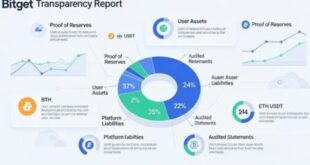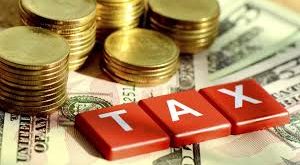In today’s fast-paced world, managing personal finances can be challenging. Unexpected expenses, emergencies, or unplanned purchases may arise, requiring additional funds. When faced with such circumstances, small loans and credit cards can be viable solutions. However, before diving into either option, it’s essential to understand their characteristics, advantages, and disadvantages. So, are you in need of some extra funds to cover your financial expenses? When faced with such a situation, you may find yourself considering different options to meet your financial needs. Two common options that individuals often explore are small loans and credit cards. Both financial tools can provide you with the necessary funds, but they work in different ways. In this blog, we will compare small loans and credit cards, examining their features, benefits, and drawbacks to help you make an informed decision regarding your financial situation.
Understanding Small Loans
Small loans, also known as personal loans, are typically fixed amounts borrowed from a financial institution or lender. These loans are repaid over a specific period with interest. Small loans offer a lump sum of money that can be used for various purposes, such as consolidating debts, covering medical expenses, or making large purchases.
Exploring Credit Cards
Credit cards, on the other hand, are a form of revolving credit. They provide individuals with a line of credit, allowing them to make purchases up to a specified limit. Unlike small loans, credit cards provide the flexibility to borrow and repay multiple times within the credit limit. Repayments are made either in full or in minimum monthly instalments, with interest charged on the remaining balance.
Factors to Consider
When deciding between small loans and credit cards, several factors should be considered:
- Financial Need
Assess your specific financial situation. Determine the amount you need, the purpose of the funds, and your repayment capabilities. Understanding your requirements will help you choose the option that best aligns with your needs.
2. Interest Rates
Compare the interest rates offered by lenders and credit card providers. Small loans generally have fixed interest rates, while credit card interest rates can vary depending on the card and your creditworthiness. Consider the long-term implications of interest rates on your financial situation.
3. Repayment Terms
Examine the repayment terms associated with small loans and credit cards. Small loans have structured repayment plans, typically ranging from a few months to several years. Credit cards offer minimum monthly payments, but if not managed properly, they can accumulate debt and extend repayment periods.
4. Credit Score Impact
Both small loans and credit cards can impact your credit score. Responsible and timely payments can improve your creditworthiness. However, missed payments or excessive credit card utilisation can negatively affect your credit score.
Benefits of Small Loans
Small loans come with various advantages:
- Fixed Amount
With small loans, you receive a lump sum amount that is determined at the time of approval. This can be beneficial for specific purposes, such as purchasing a car or covering home repairs.
2. Structured Repayment
Small loans have fixed repayment terms, allowing you to plan your budget accordingly. You’ll know the exact monthly instalment and the duration of the loan.
3. Lower Interest Rates
In some cases, small loans offer lower interest rates compared to credit cards. This can result in significant savings over time, especially for long-term loans.
Benefits of Credit Cards
Credit cards offer their own set of advantages:
- Flexibility
Credit cards provide the freedom to make purchases as needed within the credit limit. This can be useful for managing day-to-day expenses or unforeseen emergencies.
2. Rewards and Perks
Many credit cards offer rewards programs, cashback incentives, or travel benefits. If used responsibly, credit cards can help you earn rewards or enjoy exclusive perks.
3. Build Credit History
Credit card usage, when managed responsibly, can establish a positive credit history. Regular payments and low credit utilisation demonstrate financial reliability.
Drawbacks of Small Loans
Consider the following drawbacks associated with small loans:
- Fixed Amount
Unlike credit cards, small loans offer a one-time lump sum. If you require additional funds later, you’ll need to apply for a new loan.
2. Longer Approval Process
Small loans may involve a lengthier approval process compared to credit cards. This can be a disadvantage if you require immediate access to funds.
3. Early Repayment Penalties
Some small loans may impose penalties for early repayment. If you plan to repay the loan before the agreed-upon term, ensure that you understand any potential fees.
Drawbacks of Credit Cards
Here are a few drawbacks to consider when using credit cards:
- Temptation to Overspend
Credit cards can lead to overspending if not used responsibly. The revolving nature of credit can result in accumulating high-interest debt.
2. Variable Interest Rates
Credit card interest rates can fluctuate, making it challenging to predict future repayment amounts. This uncertainty can pose risks if rates increase significantly.
3. Additional Fees
Credit cards may come with various fees, such as annual fees, late payment fees, or balance transfer fees. Ensure you understand the associated costs before acquiring a credit card.
Making the Right Choice
To determine whether a small loan or credit card is better for your financial situation, consider the factors discussed earlier. Evaluate your financial needs, repayment capabilities, interest rates, and the impact on your credit score. It’s essential to choose an option that aligns with your goals and supports your overall financial well-being.
Achieve Financial Flexibility with Small Loans & Credit Cards
When it comes to choosing between small loans and credit cards, there is no one-size-fits-all answer. Each option has its own advantages and disadvantages. Small loans offer a structured repayment plan and lower interest rates, making them suitable for specific purposes. On the other hand, credit cards provide flexibility and rewards programs, but they require responsible usage to avoid accumulating debt. Consider your financial situation, goals, and preferences to make an informed decision that suits your needs. Moreover, KreditBee provides personal loan for self-employed, Flexi personal loan, personal loan for salaried and more with low-interest rates. So, what are you waiting for? Evaluate the loan amount you are eligible today!
 Newspatrolling.com News cum Content Syndication Portal Online
Newspatrolling.com News cum Content Syndication Portal Online






